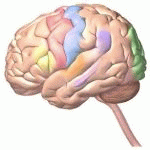Neurology
|
24 december 2014 01:45:13 |
| Chlamydia pneumoniae infection of monocytes in vitro stimulates innate and adaptive immune responses relevant to those in Alzheimer¿s disease (Journal of Neuroinflammation) |
|
Tweet Background:
Alzheimer?s disease (AD) is a progressive neurodegenerative disorder in which infection with Chlamydia pneumoniae (Cpn) has been associated. Cpn is an obligate intracellular respiratory pathogen that may enter the central nervous system (CNS) following infection and trafficking of monocytes through the blood-brain barrier. Following this item, these cells may secrete pro-inflammatory cytokines and chemokines that have been identified in the AD brain, which have been thought to contribute to AD neurodegeneration. The objectives of this work were: (i) to determine if Cpn infection influences monocyte gene transcript expression at 48?hours post-infection and (ii) to analyze whether pro-inflammatory cytokines are produced and secreted from these cells over 24 to 120?hours post-infection.
Methods:
Gene transcription was analyzed by RT-PCR using an innate and adaptive immunity microarray with 84 genes organized into 5 functional categories: inflammatory response, host defense against bacteria, antibacterial humoral response, septic shock, and cytokines, chemokines and their receptors. Statistical analysis of the results was performed using the Student`s t-test. P-values???0.05 were considered to be significant. ELISA was performed on supernatants from uninfected and Cpn-infected THP1 monocytes followed by statistical analysis with ANOVA.
Results:
When Cpn-infected THP1 human monocytes were compared to control uninfected monocytes at 48?hours post-infection, 17 genes were found to have a significant 4-fold or greater expression, and no gene expression was found to be down-regulated. Furthermore, cytokine secretion (IL-1?, IL-6, IL-8) appears to be maintained for an extended period of infection.
Conclusions:
Utilizing RT-PCR and ELISA techniques, our data demonstrate that Cpn infection of THP1 human monocytes promotes an innate immune response and suggests a potential role in the initiation of inflammation in sporadic/late-onset Alzheimer?s disease. |
| 119 viewsCategory: Neurology |
 Interactions between cognitive and sensory load while planning and controlling complex gait adaptations in Parkinson¿s disease (BMC Neurology) Interactions between cognitive and sensory load while planning and controlling complex gait adaptations in Parkinson¿s disease (BMC Neurology)Ability of naringenin, a bioflavonoid, to activate M-type potassium current in motor neuron-like cells and to increase BK Ca -channel activity in HEK293T cells transfected with ¿- hSlo subunit (BMC Neuroscience) 
|
| blog comments powered by Disqus |
MyJournals.org
The latest issues of all your favorite science journals on one page
The latest issues of all your favorite science journals on one page



